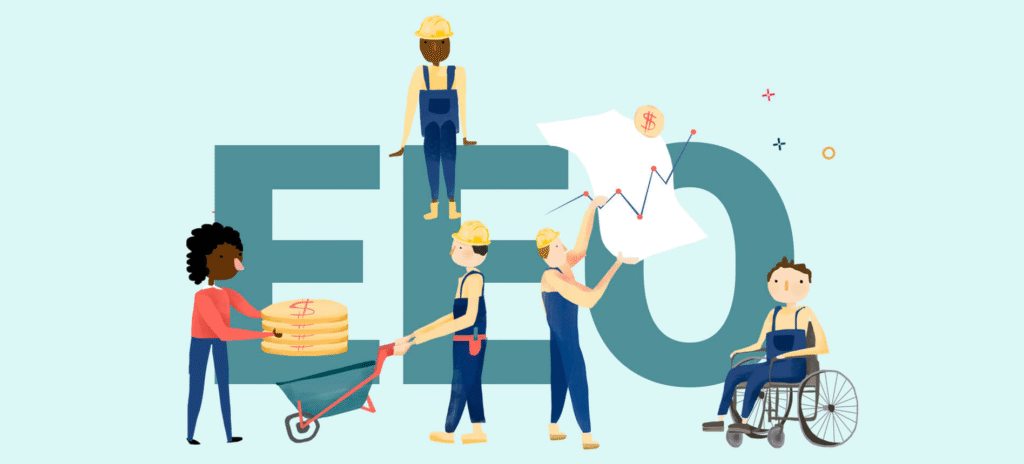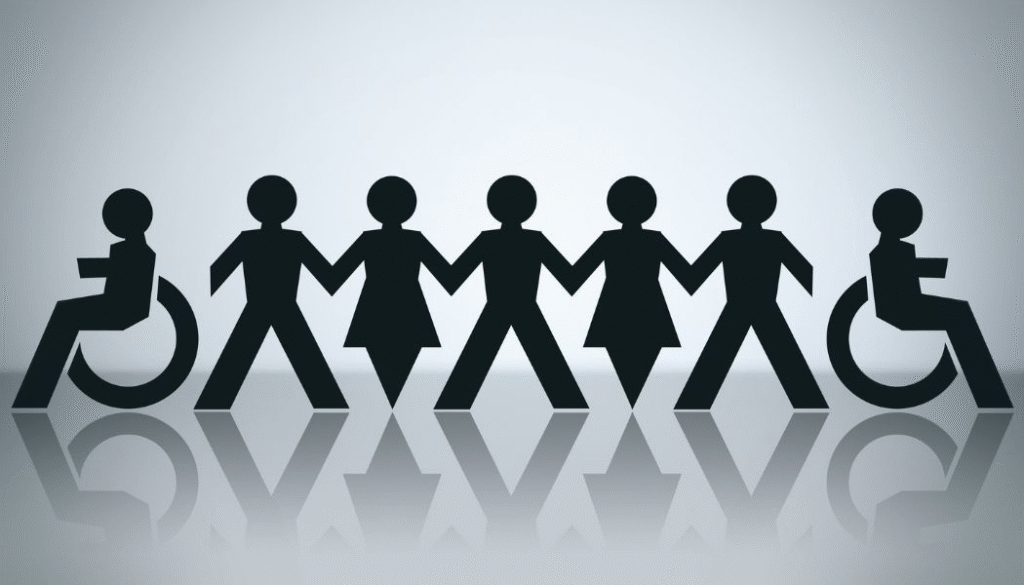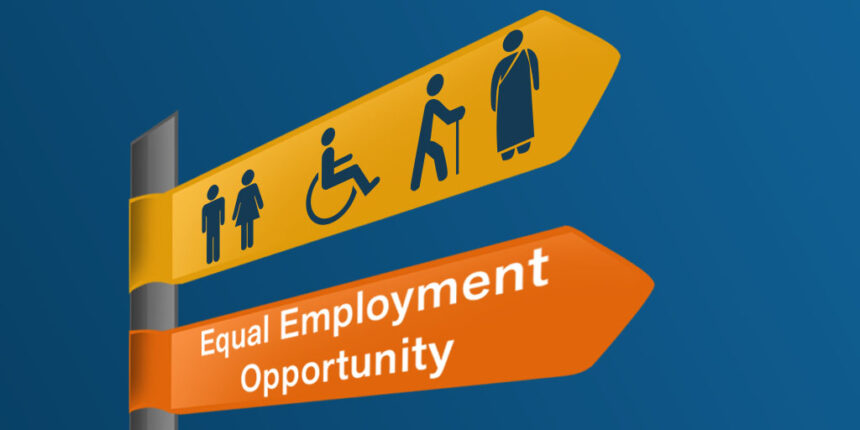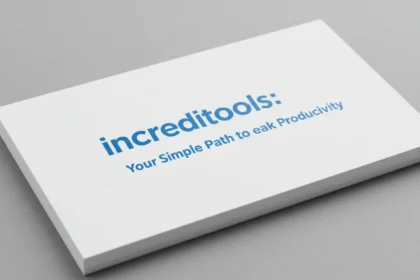Equal Employment Opportunity, or EEO, is a very important idea that helps make sure everyone is treated fairly at work. Whether you’re applying for a job or already working somewhere, EEO helps protect your rights. In this article, you’ll learn what EEO really means, why it matters, and how it protects people like you and me.
What Does EEO Mean?
EEO stands for Equal Employment Opportunity. It means that everyone has the same chance to get a job, keep a job, and get promoted at work — no matter who they are. In simple words, EEO means you cannot be treated unfairly at work because of things like your race, gender, age, religion, disability, or background.
EEO laws say that companies must treat all employees and job applicants fairly. This includes hiring, training, promotions, pay, and firing. These laws were made so that workplaces can be safe, fair, and equal for everyone. The goal is to make sure discrimination doesn’t happen in any form — whether it’s against women, people of color, people with disabilities, or older workers.
These rules come from federal laws in the United States and are enforced by the EEOC, which stands for the Equal Employment Opportunity Commission.
Why Is EEO Important at Work?
EEO is important because it creates fairness and equal treatment. When everyone is treated equally, they can work better, feel safe, and grow in their careers. It helps stop bias and discrimination in the workplace, which can be harmful to both employees and companies.
For example, imagine you’re a great worker, but you’re not getting promoted just because of your race or gender. That’s unfair — and it’s exactly what EEO is designed to stop. EEO makes sure people are judged by their skills, experience, and performance, not by things they can’t control.
It also helps businesses grow. When companies follow EEO laws, they hire the best people, create a strong team, and build a good reputation. People are more likely to apply for jobs and stay longer when they know the company treats them fairly. That’s why EEO matters so much — for employees and employers alike.
Who Does EEO Protect?
EEO protects every employee and job applicant in the U.S. It doesn’t matter where you’re from, how old you are, or what religion you follow — you are protected under EEO laws.

The law clearly lists protected classes. That means there are specific groups of people who cannot be treated unfairly because of their:
- Race or Color
- National Origin
- Sex or Gender
- Pregnancy
- Religion
- Age (40 and older)
- Disability
- Genetic Information
- Veteran Status
These groups are called protected classes, and EEO laws work to make sure these people are not treated unfairly. Even if you don’t belong to any of these groups, you still have rights at work, and EEO laws still protect you from unfair treatment.
Does EEO Help People with Disabilities?
Yes, absolutely. EEO protects people with physical or mental disabilities. Employers must provide something called reasonable accommodations. That means if you need a change or adjustment at work because of your disability — like special equipment, flexible hours, or help doing certain tasks — your employer must try to help.
As long as you can do the main parts of the job with or without help, you should be treated like anyone else. Discrimination against people with disabilities is against the law under EEO rules.
Is Age Discrimination Covered by EEO?
Yes. If you are 40 years old or older, the law protects you from age discrimination. That means a company can’t fire you, refuse to hire you, or pay you less just because you’re older.
This is covered under the Age Discrimination in Employment Act (ADEA). Many older workers are skilled and experienced. EEO makes sure they’re not pushed aside just because of their age.
Can EEO Help Me If I’m Treated Unfairly?
Yes, if you’re treated unfairly at work because of your race, gender, religion, disability, age, or other protected reasons, EEO laws can help you. You have the right to speak up and file a complaint.
Even if the unfair treatment is not clear or is hard to prove, the Equal Employment Opportunity Commission (EEOC) will investigate to see if your rights were violated. EEO is here to protect you.
What Is the EEOC and What Do They Do?
The Equal Employment Opportunity Commission (EEOC) is a government agency that makes sure companies follow EEO laws. If someone breaks the law by treating you unfairly, you can go to the EEOC for help.
The EEOC investigates complaints, talks to the people involved, and tries to fix problems. If a company breaks the rules, the EEOC can make them pay fines, give back pay, or even change how they do things. The EEOC also educates people about their rights, so they know what is legal and what isn’t.
In short, the EEOC is the watchdog that makes sure workplaces are fair and equal.
How Does EEO Stop Discrimination at Work?
EEO stops discrimination by setting clear rules that all employers must follow. These rules are enforced by the EEOC and other agencies. If a company breaks these rules, they can face serious consequences.
Employers must:
- Treat all workers equally
- Give everyone the same chances
- Avoid unfair tests or questions during hiring
- Provide help for people with disabilities
- Make sure no one is harassed or bullied because of who they are
If they fail to do this, they can be sued or fined. That’s how EEO works — it makes employers take fairness seriously.
What Are Your Rights Under EEO?
Every worker in the U.S. has rights under EEO laws. Here’s what that means for you:

- You can’t be fired, rejected for a job, or treated differently because of your race, age, gender, or disability.
- You have the right to work in a safe and fair environment.
- You can ask for accommodations if you have a disability.
- You have the right to speak up if you are harassed, bullied, or treated unfairly.
Your employer cannot punish you for reporting something that’s wrong. This is called retaliation, and it’s illegal too.
Can I Complain If Treated Unfairly?
Yes, you can. If you believe you were treated unfairly at work because of who you are — your age, race, sex, religion, disability, etc. — you can file an EEO complaint.
Don’t stay silent. The law gives you the power to speak up and be heard. You have rights, and you should use them.
How Do I File an EEO Complaint?
Filing an EEO complaint is simple. Here’s what to do:
- Contact the EEOC — You can do this online, by phone, or in person.
- Explain what happened — Give as much detail as you can.
- File the charge — The EEOC will guide you through the steps.
- Wait for the EEOC to respond — They will investigate your case.
You usually have 180 to 300 days after the unfair treatment to file a complaint, so don’t wait too long.
What Happens After I File a Complaint?
After you file an EEO complaint, the EEOC will review it. They may talk to your employer, check documents, and ask questions. This is called an investigation.
Sometimes, the EEOC tries to fix the problem by talking to both sides. This is called mediation. If that doesn’t work, they might take legal action or let you sue your employer in court.
The whole process takes time, but it’s worth it if it means getting justice.
What Happens If a Boss Breaks EEO Laws?
If a boss or company breaks EEO laws, they can face serious penalties. This might include:
- Paying money to the victim
- Changing their company policies
- Rehiring or promoting someone they treated unfairly
- Going to court and losing the case
Breaking EEO laws is not just bad — it’s illegal. The law protects workers, and companies have to follow it.
The Bottom Line
EEO — Equal Employment Opportunity — is about fairness, equality, and justice at work. It means no one should be treated unfairly because of things like race, gender, age, or disability. These laws protect people, create better workplaces, and give everyone a fair chance.
Whether you’re young or old, new to the job, or experienced, EEO helps you feel safe, respected, and heard. If someone breaks the rules, you have the right to speak up — and the law is on your side.







